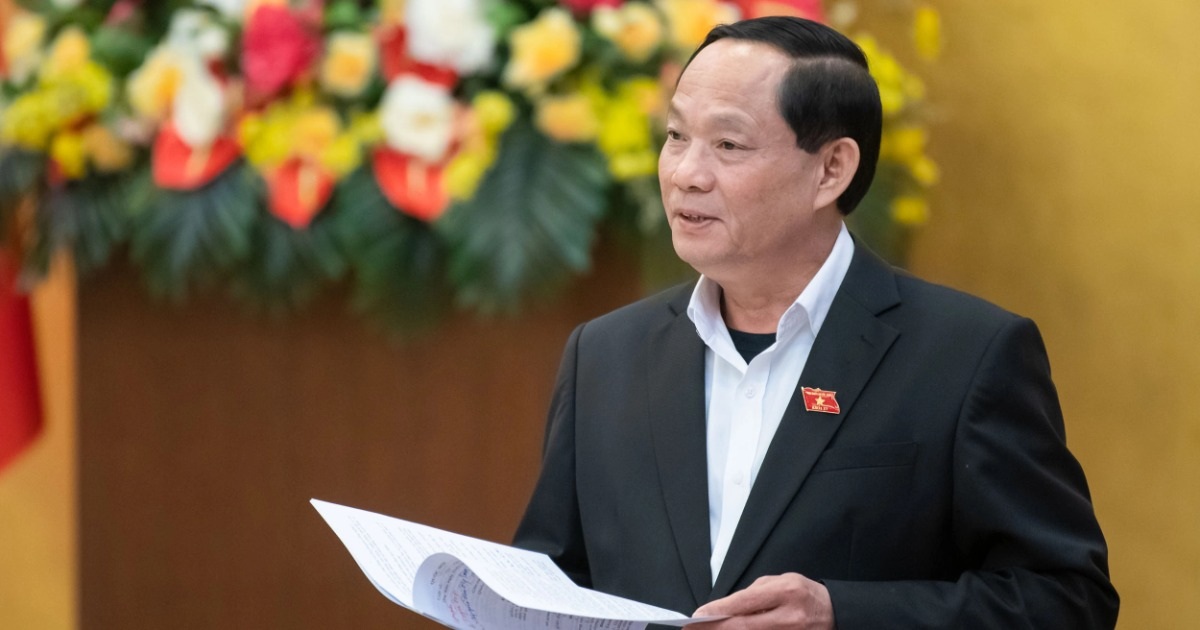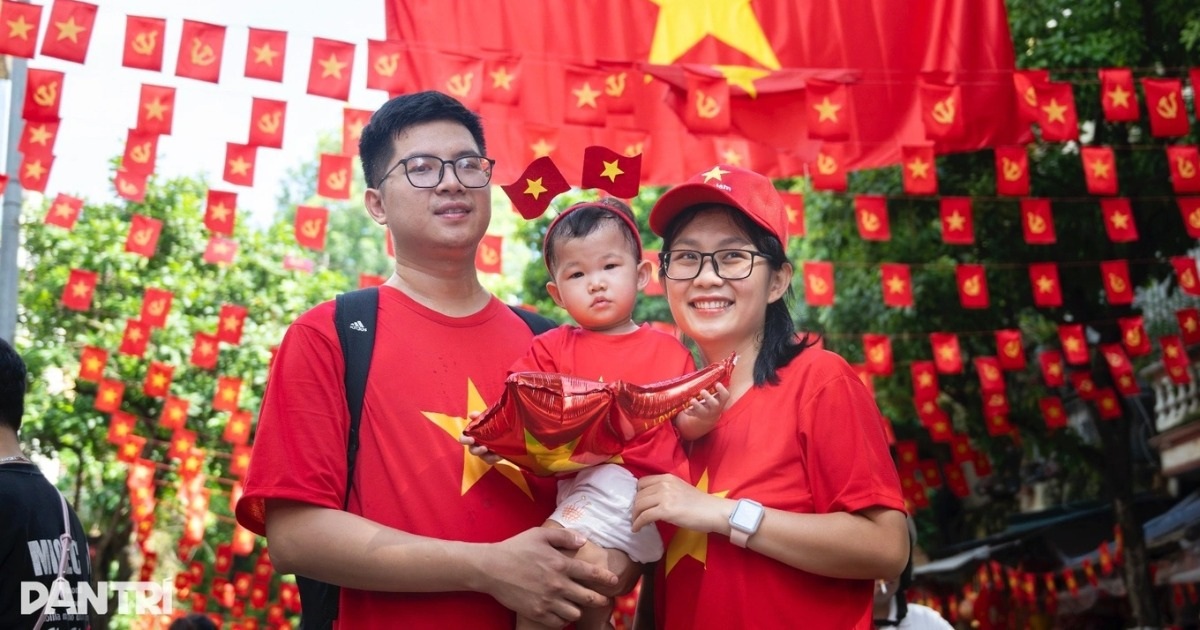On February 7, the Standing Committee of the National Assembly provided comments on major issues related to the draft Teachers’ Law.
Teachers in remote areas for 10-20 years still remain there
Regarding Articles 19 and 21 in the draft law concerning the transfer and reassignment of teachers in public educational institutions, the Vice Chairman of the National Assembly proposed more detailed regulations.
He cited the regulation that “teachers who have worked in ethnic minority, mountainous, border, island, and economically disadvantaged regions for at least three years can be reassigned if the receiving location agrees.” However, in practice, many places find excuses such as being fully staffed, leading to situations where teachers stationed in remote areas for 10-20 years remain there.
Vice Chairman Tran Quang Phuong (Photo: Pham Thang).
“This time when making the Teachers’ Law and later the Education Law, we must address this issue. We agree to allow teachers to be reassigned based on their preferences but also need to tie this with regulations on transfers. In other words, management authorities have the right to transfer teachers who have worked for at least three years in difficult areas to better locations to implement policies for these individuals,” Mr. Phuong explained.
According to him, when state agencies transfer teachers from lowland areas to highland areas, they must do so, similar to the military, where orders must be followed. If not, the teacher must resign.
“We show preference but must enforce strict discipline,” emphasized Vice Chairman Phuong.
Minister of Education and Training Nguyen Kim Son shared that he also wished for stronger policies in teacher transfers but noted that it is very different from military transfers since the education sector does not manage civil servants but leaves it to provincial authorities.
Currently, at the provincial level, transfers only occur between different districts for secondary schools, while primary schools cannot be transferred between districts.
“Suggesting that the provincial department handle transfers within the province is already a revolutionary change. If given overall management of civil servants like the military, it would work better, but currently, we are not at that level,” Minister Son said.
“Don’t interfere in teacher recruitment”
Regarding the authority to recruit teachers, the draft law stipulates that for public educational institutions with autonomous rights, the head of the institution is responsible for recruitment and holds responsibility for their decisions.
For public educational institutions without autonomous rights, the authorized management agency handles recruitment or delegates it to the educational management agency, with the head of the institution conducting the recruitment.
Chairman of the Legal Committee Hoang Thanh Tung (Photo: Pham Thang).
Emphasizing thorough decentralization and devolution, Vice Chairman Tran Quang Phuong suggested that both autonomous and non-autonomous educational institutions should have the right to recruit teachers, with no interference from educational management agencies.
“This is a spirit of innovation, thorough decentralization, and devolution. Recruitment should be left to the educational institutions; management agencies should not intervene. If you recruit incorrectly, you will face legal consequences,” Mr. Phuong stated.
According to him, only educational institutions know who and what they are lacking and can base recruitment standards accordingly. If management interferes in recruitment, Vice Chairman Phuong believes it will lack transparency.
Chairman of the Legal Committee Hoang Thanh Tung agreed with the general spirit of the recruitment regulations but suggested clarifying how these differ from the Civil Servant Law regarding delegating authority to educational management agencies.
Clarifying the regulations further, Minister of Education and Training Nguyen Kim Son also emphasized the spirit of strong decentralization, as per the draft law, which delegates authority to educational institutions or management agencies.
Minister of Education and Training Nguyen Kim Son (Photo: Pham Thang).
“Decentralization is correct, but with 63 provinces and over 50,000 educational institutions, the scale varies. Even within the same type of school, kindergartens and high schools differ greatly. High schools in Hanoi are vastly different from those in mountainous, remote areas. If kindergartens and primary schools in remote areas are entrusted with hiring staff, it could lead to disaster,” Minister Son pointed out.
He argued that giving them this power might result in a “disaster” rather than success.
“Primary schools also say that if given this responsibility, they would face immense pressure from all sides. Therefore, this is a suggestion, not just a matter of decentralization,” the Education Minister shared, advocating for flexibility in this regard.
Source link: https://dantri.com.vn/xa-hoi/dieu-dong-giao-vien-phai-nhu-quan-doi-khong-di-thi-nghi-viec-20250207112810621.htm



